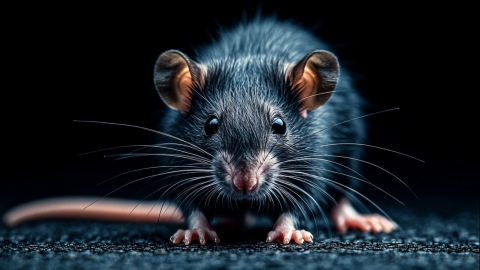What to do if bitten by a mouse
After being bitten by a rat, you should immediately wash the wound, disinfect it, seek medical attention promptly, receive vaccinations, and perform proper wound care. These measures help reduce the risk of infection and promote wound healing. The detailed steps are as follows:

1. Wash the wound immediately: Rinse the wound thoroughly with running water and soap for at least 10 minutes. This step helps remove surface dirt and rat saliva from the wound, reducing the risk of infection. Gently squeeze the area around the wound while rinsing to help expel contaminated blood and debris.
2. Disinfect the wound: After washing, disinfect the wound using medical alcohol, iodophor, or hydrogen peroxide solution. For small wounds, use a cotton swab dipped in disinfectant to gently wipe the area. For deeper or larger wounds, it is recommended to pour an appropriate amount of disinfectant directly onto the wound to kill bacteria and prevent infection.
3. Seek medical attention promptly: After initial treatment, go to the hospital as soon as possible. A doctor will evaluate the wound and determine if further treatment, such as debridement or suturing, is necessary.
4. Receive vaccinations: After a rat bite, you may need to receive vaccines such as rabies vaccine, tetanus vaccine, or hemorrhagic fever vaccine. These vaccines help prevent diseases caused by pathogens carried by rats, including rabies, tetanus, and epidemic hemorrhagic fever.
5. Wound care: During the recovery period, keep the wound clean and dry, avoiding contact with water or contaminants. Change the dressing regularly and use topical disinfectants as directed by your doctor. Monitor the wound closely for signs of infection such as increased redness, swelling, pain, or pus discharge. If any abnormalities occur, seek medical attention promptly.
In daily life, maintain good environmental hygiene and avoid contact with animals that may carry infectious diseases. If bitten, note the characteristics of the animal involved, as this information can assist doctors in diagnosis and treatment.









